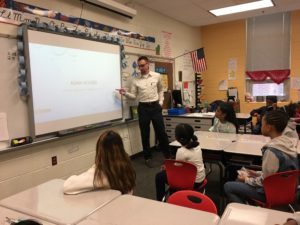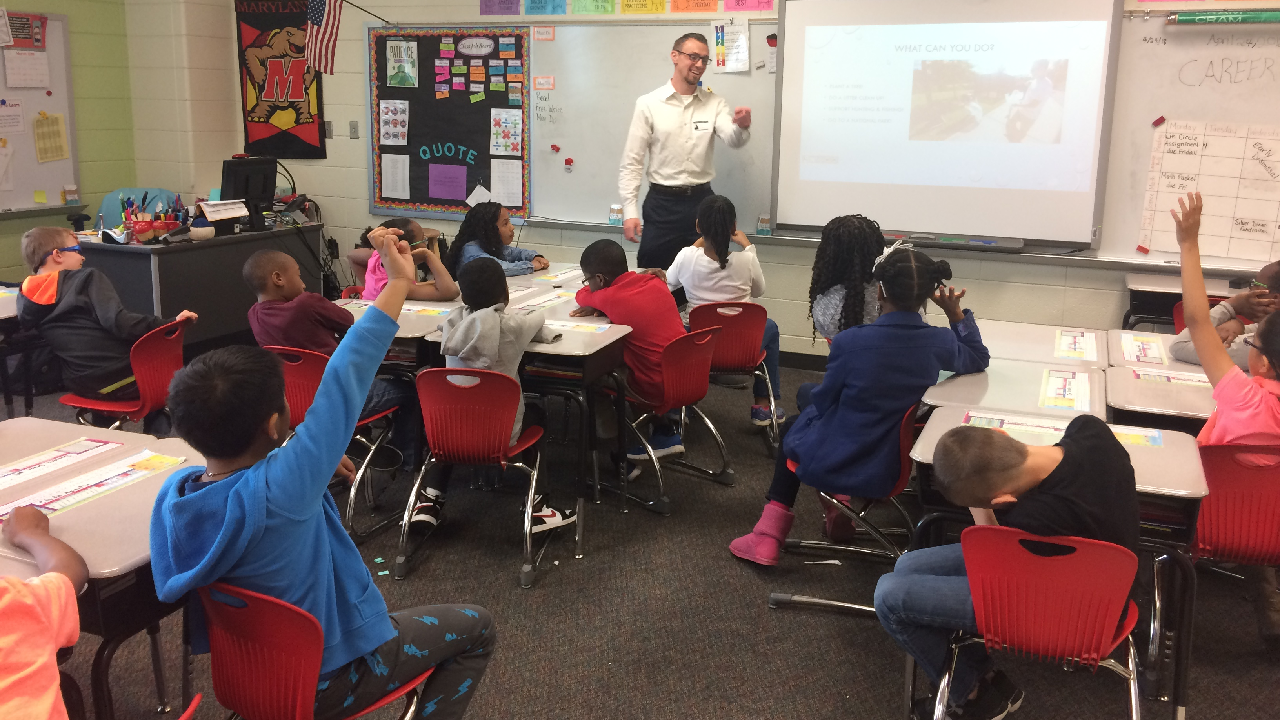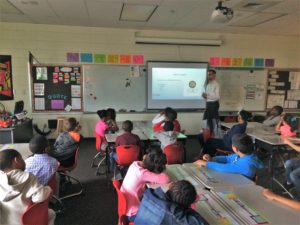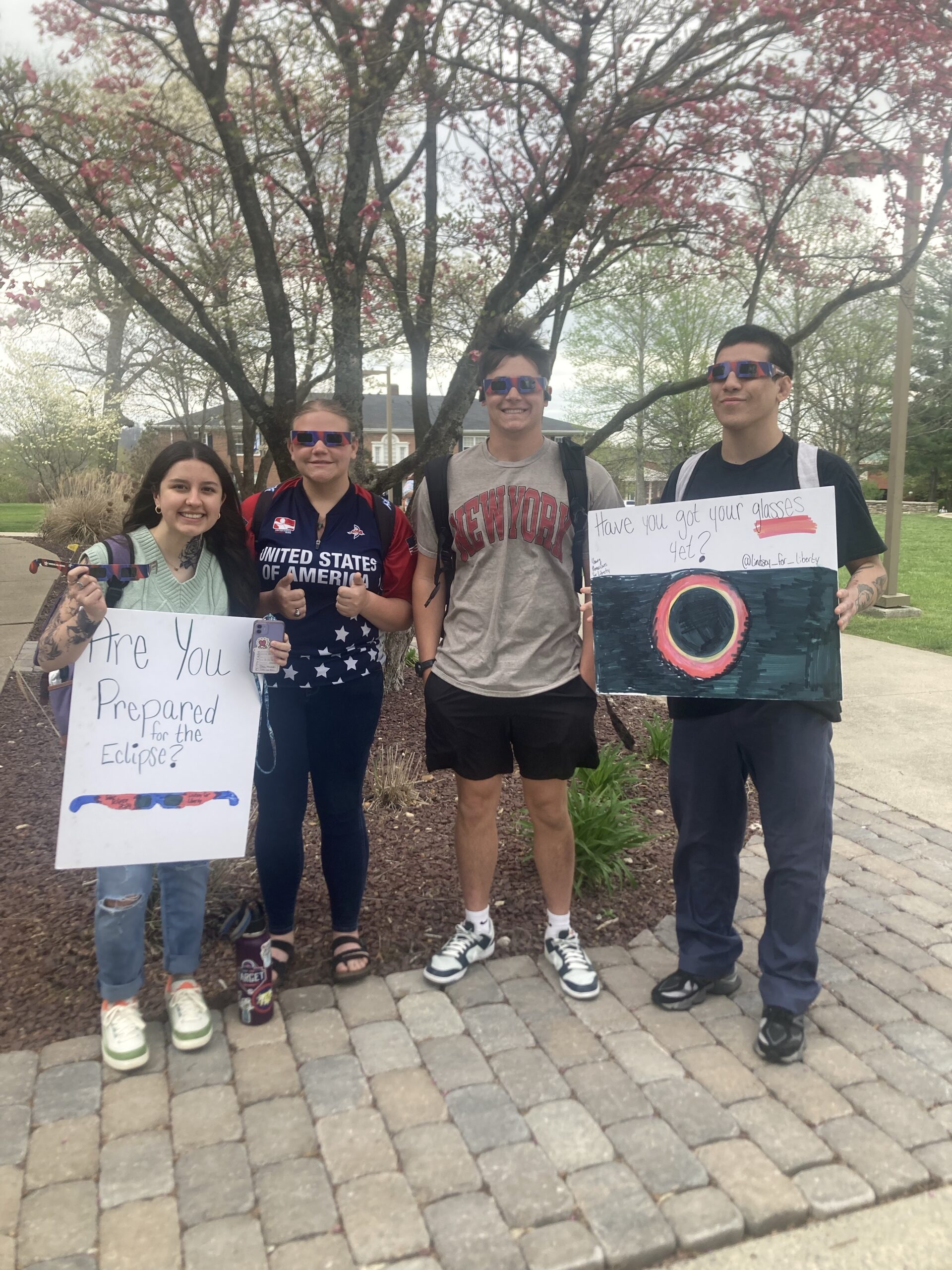“I’m here to tell you that you don’t need to worry about the polar bears! They’re doing fine-in fact they’re at their highest numbers ever.”
That was just part of the message that Adam Houser of CFACT shared with over 250 students at career day at Mary B. Neal Elementary in Waldorf, Maryland.
“I was invited to speak to 10 different classes of over 25 students each in 2nd and 3rd grades,” explained Adam. “I got to talk about how awesome my job is of course, but that also gave me the opportunity to talk about the issues CFACT covers. So these public school students heard about the truth on environmental issues for really the first time ever.”
Houser covered everything from fracking and natural gas, polar bears, the benefits of hunting, and how individuals and businesses can help the environment without the government.

Students listen to an introduction of how individuals, non-profits, and businesses can protect the environment.
“Even young students can understand these issues when you get them engaged and present it in exciting ways they can understand,” Houser added. “You ask them a question like, ‘who likes polar bears?’ and ‘who has heard they are dying?’ and all of the sudden the entire classroom is buzzing. I would then add something like ‘Well CFACT works with zoologists, which is a fancy word for animal scientists, who say polar bears are actually at their highest numbers ever!'”
Houser is referring to research performed by Dr. Susan Crockford, a paleozoologist from the University of Victoria. Her research shows that polar bears are at their highest levels in 50 years, numbering anywhere from 30,000-50,000 in the wild.
“I also went over how the students could make an impact in their own communities. Organizing litter clean ups, being responsible hunters, attending national parks, planting trees-these are all ways they can help the environment.”
Houser went on, “Interacting with these hundreds of students gave me hope for the future. If we can continue to find ways to engage students so they have a balanced presentation of the issues, we’ll be a lot better off in the future, and they’ll be much more prepared for life going forward.”




